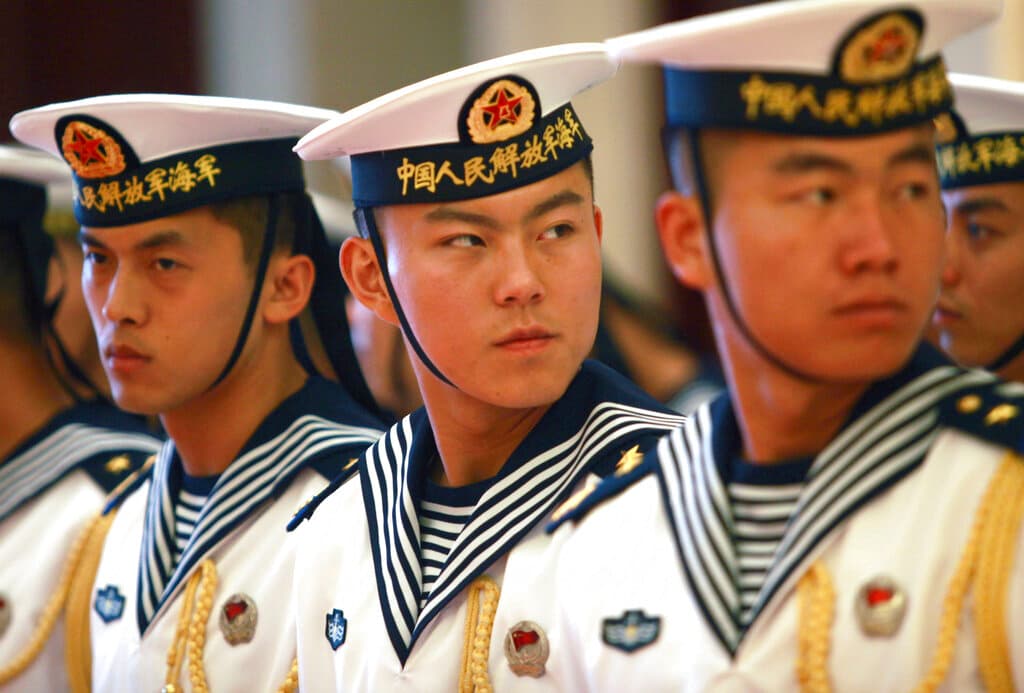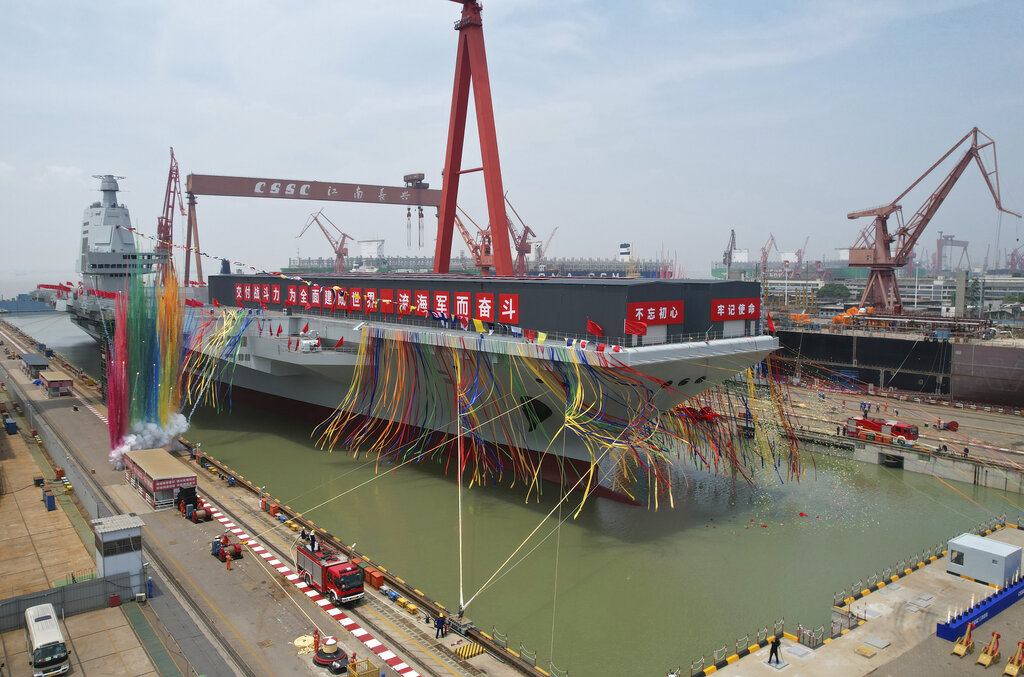Communist China, for the First Time, Names an Admiral as Defense Minister
And guess against whom Admiral Dong is going to be setting his sights.

With the world’s eyes fixated on Free China amid heightened provocations and as voters head to the polls on Saturday, Communist China has been busy making strategic moves that suggest its wider political and military objectives — and hint at how it might go about achieving them. For Beijing, Taiwan is one piece of a much larger geostrategic puzzle.
Most significant has been the appointment of Admiral Dong Jun as China’s new defense minister. Admiral Dong, a career surface warfare officer and previous Commander of the People’s Liberation Army Navy, is the first-ever naval officer to head China’s defense forces. His appointment signals China’s transformation from a traditional land-power-only nation to one that is, indeed, becoming a “truly great maritime power.”
Admiral Dong’s appointment also suggests China’s heightened focus on joint military operations in pursuit of its sovereignty claims — and efforts to project power further afield. Between 2013 and 2014, Admiral Dong commanded the East China Sea Joint Operations Command Center, established in 2013 as a “special joint operations command headquarters” for military operations in the East China Sea.
The admiral has overseen joint naval operations in the Southern Theater Command, and engaged foreign navies including those of Pakistan, Russia, and North Korea. His appointment comes as the proverbial cherry on top of PLA’s transformation to Mr. Xi’s “world-class military” from Mao Zedong’s once fledgling “people’s army.”

This transformation, hastened by Chairman Xi since 2015, has involved purges of PLA units immaterial for war fighting, the establishment of operationally streamlined and integrated command theaters, the creation of cyber and electronic warfare units, and a rapid naval build-up. It is the most far-reaching peacetime military transformation since World War II.
For America, the implications of these developments are vast and grave. First, they suggest that the timeline for China’s annexation of Taiwan has likely been shortened. Mr. Xi hinted as much in his New Year’s address. This year marks “the 75th anniversary of the founding of the People’s Republic of China,” Mr. Xi said. “China will surely be reunified.”
Whether Mr. Xi decides to invade Taiwan this year only he knows. Yet when he does, it will not be because of the outcome of Saturday’s election. Xi Jinping and his comrades are threatened not by any one man, but by the idea of a democratic self-governed Taiwan.
The People’s Liberation Army has historically turned to deception to outwit its adversaries. The military legends of Li Guang and his 100 horsemen, and Zhuge Liang and the Empty City, continue to animate PLA strategists. Both tell the tales of outgunned Chinese forces having cunningly baited their enemies into ambush.
Taiwan is not merely a decoy. Yet its reunification could yet proceed unlike how many analysts suspect — all the more in light of Admiral Dong’s appointment. Rather than conveniently strike off mainland China’s coast, across the Taiwan Strait and into readied allied crosshairs, Beijing could, say, opt to approach from elsewhere.
From, say, the Second or Third Island Chains, behind America’s westernmost defenses. For this, Admiral Dong’s naval and joint operations experience beyond the First Island Chain would uniquely qualify him to articulate and defend such a ploy — the focus of his role.
In recent months, Beijing has intensified its maritime attacks on the Philippines. In the Pacific Islands — including the Freely Associated States, for which Congress has yet to renew and fund its compacts — it has expanded its security footprint and secured critical maritime and communication infrastructure. In a conflict scenario, the islands could be logistically significant for Beijing. Significant, too, to stymie the movement of American forces.
At the strategic level, then, Admiral Dong’s appointment suggests a China that has grown more militarily assertive and innovative in pursuit of its “new world order.” A China that is eager and increasingly able to project power beyond the Taiwan Strait, whether to take Taiwan or should it successfully do so.
It also suggests Beijing’s strategic focus on the maritime domain as paramount in its battle against America. In December 2022, Admiral Dong headed a meeting of senior Chinese naval officers. Its aim? To make all preparations necessary for victory in a “high-end naval war” against America. The next American administration should take note and adjust policy accordingly.

